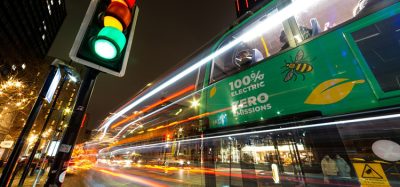TRL to set safety standards and sustainability measures for e-scooters
- Like
- Digg
- Del
- Tumblr
- VKontakte
- Buffer
- Love This
- Odnoklassniki
- Meneame
- Blogger
- Amazon
- Yahoo Mail
- Gmail
- AOL
- Newsvine
- HackerNews
- Evernote
- MySpace
- Mail.ru
- Viadeo
- Line
- Comments
- Yummly
- SMS
- Viber
- Telegram
- Subscribe
- Skype
- Facebook Messenger
- Kakao
- LiveJournal
- Yammer
- Edgar
- Fintel
- Mix
- Instapaper
- Copy Link
Posted: 26 July 2023 | Intelligent Transport | No comments yet
TRL’s research aims to pave the way for effective regulations and sustainable practices in the emerging e-scooter industry, with a key focus on safety, inclusivity and environmental impact.


Credit: TRL
The Transport Research Laboratory (TRL), supported by WMG at the University of Warwick, has announced that it has secured a technical research contract from the Department for Transport (DfT) to determine the future technical standards for e-scooters. The objective is to ensure the safety of riders and other road users, promote inclusivity for people with disabilities and contribute to reducing carbon emissions.
To encourage the growth of light electric vehicles while maintaining safety, the DfT plans to create a new Low-Speed Zero Emission Vehicle (LZEV) category, with e-scooters being the first vehicles included in this sub-category. Thus, the DfT has asked for evidence on the technical aspects of e-scooter design, construction and maintenance, as well as how to address the mobility needs of individuals with disabilities.
The recommendations resulting from this research will aid the DfT in crafting effective regulations for e-scooters that are flexible, encourage innovation and minimise industry regulatory burdens.
Halting the progress of e-scooters: Why is Paris taking a step backwards?
TRL‘s Head of New Mobility, Dr. George Beard, said: “TRL has in-depth knowledge and experience of developing national and international regulations and standards. We will be working with DfT, WMG and the wider industry to ensure our recommendations help to deliver a regulatory mechanism to encourage safe, sustainable and inclusive e-scooters, and which is mindful of the needs of, and practical challenges faced by, the industry.”
The sustainability aspect of e-scooters is crucial, and the research will focus on producing recommendations that ensure the entire supply chain adheres to best practices in sustainability.
The project is expected to take approximately 10 months, but the timing for the Transport Bill providing regulatory powers for new LZEVs is currently unknown. Once established, the LZEV regulations are expected to attract manufacturers and service providers to the UK, supporting local capability and innovation in the e-scooter industry.
If you liked this, you may also be interested in:
Related topics
Micro-mobility, Mobility Services, Transport Governance & Policy
Related modes
Bikes & Scooters
Related countries
United Kingdom
Related organisations
Department for Transport (DfT), Transport Research Laboratory (TRL)
Related people
George Beard







